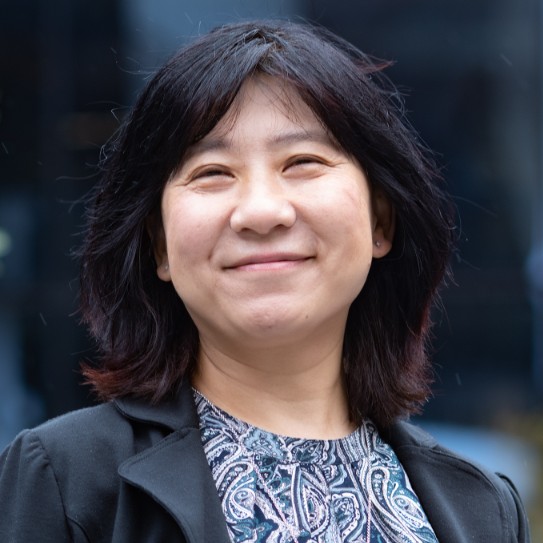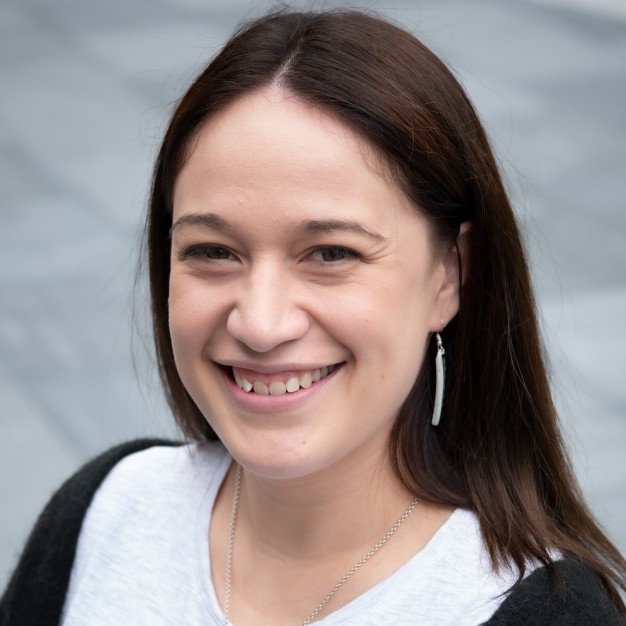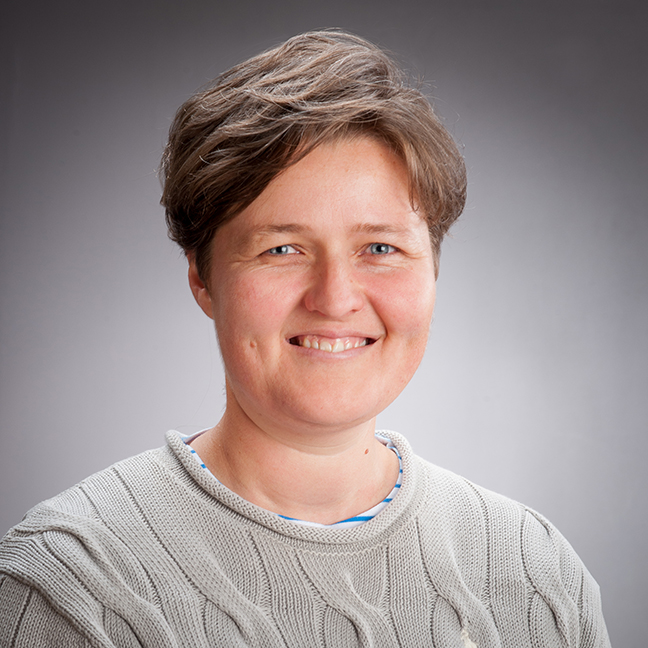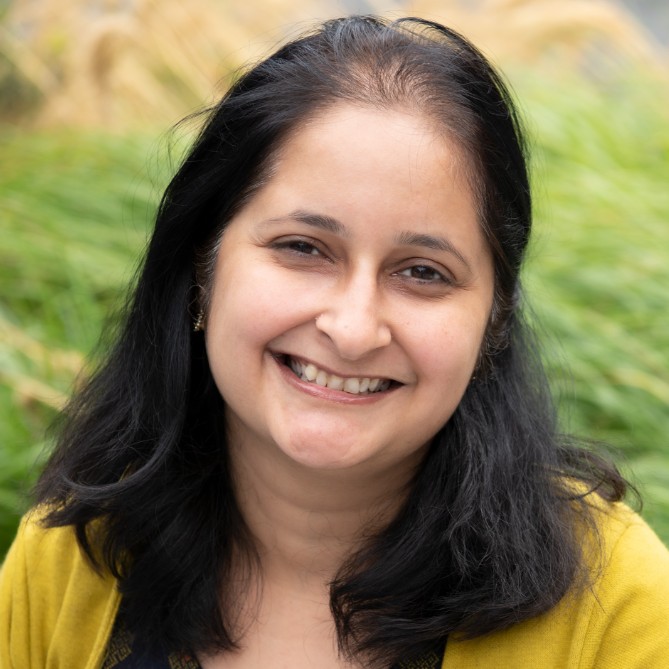The Wh‘Y’ Factor
Female academics at the School of Engineering and Computer Science (ECS) speak about their experiences of working in a traditionally male domain and emerging opportunities for women in technology.
Associate Professor Xiaoying Gao (Sharon)

I joined ECS in 2000 and I was the only female lecturer for 5 years, between 2003 and 2007. In the nearly-20 years I’ve been here, I feel like I’ve never stopped learning. And I’ve never felt any different, or disadvantaged, being a woman. In fact, I got a lot of support from my colleagues when I started teaching here.
In the workplace, everyone is the same—I don’t think of myself as a role-model, or as someone special. On the personal front, I didn’t feel any different when I got married but things did change when I had my daughter, which is probably very natural.
Over the last few years, I’ve seen more and more young women choosing to get into computer science. But I believe there are many students who don’t choose this stream either because they think it’s going to be very difficult or think that they can’t cope. In fact, I would suggest that they should try something challenging when they are young. Your first degree should be one that pushes your boundaries and broadens the way you think. And that experience can have a huge influence on the direction students choose after that.
Associate Professor Hui Ma

I joined ECS in 2008, and I came from an environment where engineering is male-dominated—my first degree was in civil engineering, where women formed less than 30% of the class.
We definitely see more female students taking computer science and engineering courses. Events like Open Day play a role there, because students get to interact with the staff, ask questions—and it helps them realise that these subjects aren’t so scary after all. The reality is that things have changed a lot for women—we have more responsibilities now, having to manage professional and personal lives. But the important thing is to not see yourself as being lesser for it. Rather, young women today have more opportunities in the technology field because all the big companies are looking to increase representation of women in their staff. Being in the minority can be an advantage in this field.
I always let students see me as I am, a regular person who’s working in a field that she’s passionate about—and hopefully that inspires them enough to think ‘If she can do it, so can I’.
Associate Professor Bing Xue

I started my PhD at ECS in 2010, went on to do my post-doc and am now teaching here. I’m also a new mother and have recently come back from maternity leave. Obviously, your priorities change when you have a child, and it’s easy to feel like you need more time to recover. But I see many women here in New Zealand, who come back to work after 10 weeks, and I find that very inspiring. It makes me feel that I can do that as well.
Interestingly, I have a number of female doctorate students. Now, it’s possible that female students are more comfortable when at least one of the supervisors is a female. They possibly find it easier to communicate, especially in the case of international students.
One of the main reasons I went into computer science is this field typically involves more ‘hard skills’ as compared with other fields. I feel that working with hard skills gives you more control over your work. That is something that girls should think about, whether they prefer a field that includes more soft skills or hard skills. My point is—if I can do this, so can they.
Kirita Escott

I started my PhD last year and am an assistant lecturer, so I’m early on in my academic career. The environment in the school is different from what you see in other places because we end up working by ourselves a lot. I was happy working as a software developer but I’m very interested in cloud computing and took the opportunity to further my learning.
Sharon may not feel like a role model but she was my first female role model here in the school. She taught me COMP102, the introductory computer science course. When I started my degree, it was very inspiring to be taught by a woman in a predominantly male environment. I think that there are a lot more women joining the industry, which is great to see.
I never imagined that I would do a PhD. I didn’t consider myself to be strong academically, so I didn’t consider it as a possible career path. It is very inspiring to be around women like Sharon, Hui, and Bing who are strong academics. After some encouragement and a lot of hard work, I decided that this was something I could do too. My hope for the future is that we can instil confidence in young minds as they come along, as these women have done for me.
Dr Jennifer Ferreira

I’ve been at ECS for about 6 months and currently teach at the ICT Graduate School. Interestingly, though we have lower numbers, we have a higher ratio of female students in the post-graduate programmes. These are all students who have some work experience and are now choosing to go down the technology, and I wonder if there’s some change they go through when they become mature students.
I studied commerce and computer science here during my undergraduate days but decided to continue in the computer science strand. So I’ve always been in the minority. But I think the reason we’re seeing more women come into the sector is that today, technology is literally everywhere - as compared with the 80 and 90s, when you could choose to open up a computer. Now you can’t get away from it, and that probably gets more people to think about technology as a career option.
The few challenges that I’ve faced are more related to me being new, and I expect that those will even out over time. What I’d say is that my experience of being here and being taught by some of the academics (who are now colleagues) has been very positive. And that’s the reason I chose to come back.
Dr Jyoti Sahni

Having started here just a couple of months ago, everything still feels very new. But it has been good for me in terms of learning more about the school and the university. Coming from India, the one thing that stands out for me is how many more men are in academia here. Back home, you don’t see men getting into the teaching stream, they tend to go down the industry track. So that’s a new experience for me, in the context of the school.
I was teaching at an engineering college in New Delhi, but decided that I wanted to try something new last year. It seemed like a good idea to explore overseas opportunities and I applied for this role once I discussed it with my husband and family. It was also a great experience to come here for the interview, because I could see the campus and talk to people in the school. Everyone is really helpful and that makes a huge difference when you’re moving across continents, with family.
I think financial independence is important for women today across the world. And technology is one area that can offer them a great deal of it. So why not take the plunge and see how it feels?
